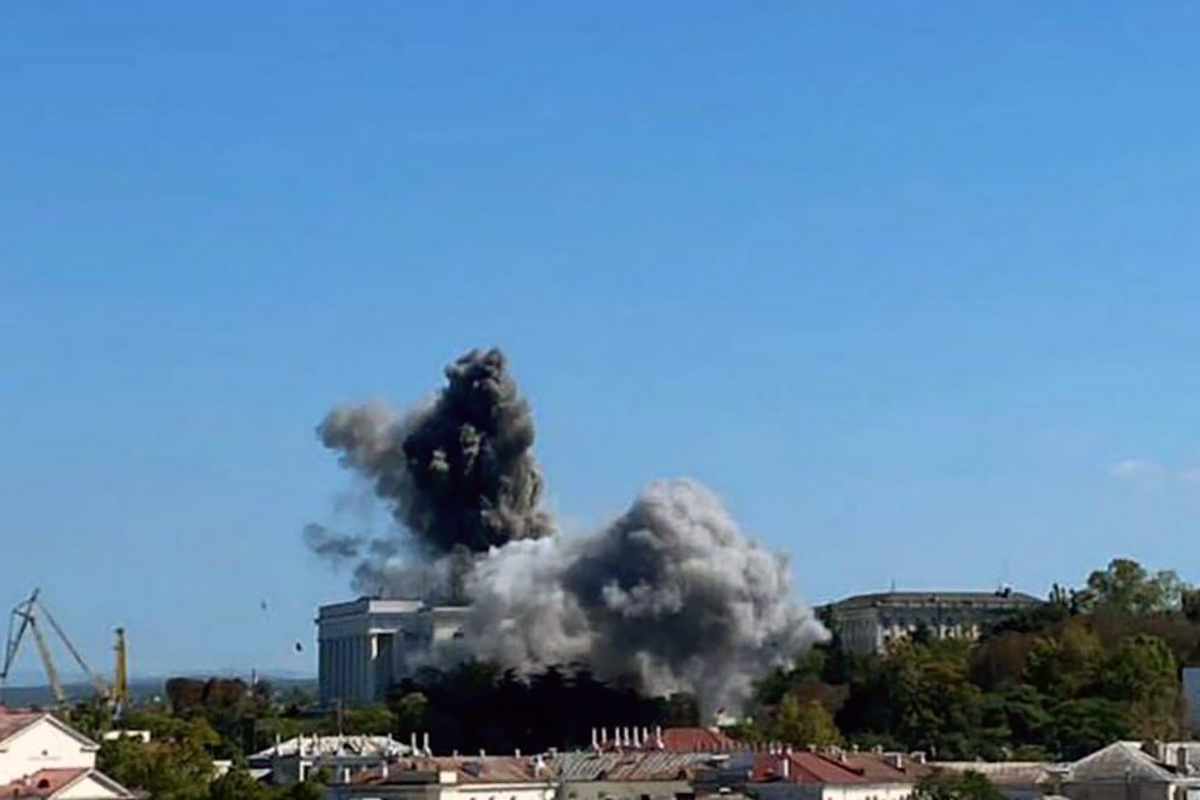
President of Abkhazia Aslan Bzhaniya has announced that Russia will establish a naval base in Ochamchira (Ochamchire) ‘in the near future’.
In an interview with Izvestia, Bzhaniya said that Sukhumi (Sukhum) had reached an agreement with Moscow to establish the base to increase the defencive capabilities of both Russia and Abkhazia.
Bzhaniya gave the interview in Sochi, a Russian resort town on the Black Sea, where he met with Russian President Vladimir Putin and Foreign Minister Sergei Lavrov on 3–4 October.
‘The meeting took place in a friendly, trusting atmosphere’, said Bzhaniya in a press briefing, noting that he could not share any further details about the planned naval base.
Bzhaniya also said that he had discussed with Putin the possibility of Abkhazia joining the Union State, a supranational union between Russia and Belarus.
‘We have every reason to count on the support of the Russian Federation’, said Bzhaniya. ‘We talked […] about the possible participation of Abkhazia in the Union State in the future.
‘All this was received positively, we need to work on it day and night’, said Bzhaniya, who earlier this year had dispelled rumours about Abkhazia joining the Union State.
Bzhaniya added that Putin had pledged to continue to provide support to Abkhazia in the field of energy supply. They also discussed the establishment of a power station in Abkhazia.
Abkhazia’s Foreign Minister Inal Ardziba stressed on Thursday that participation in the ‘integration processes, including in the military sphere, is the sovereign choice of the Republic of Abkhazia’.
He argued that the naval base corresponds to the ‘fundamental interests of our people, helping to strengthen our security’.
At the same time, Ardzinba highlighted the need to sign a an agreement with the Georgian government on the non-use of force.
‘This is not a question that needs to be delayed. We are the outside world. However, Georgia’s position does not support the security situation in the South Caucasus’, said Ardzinba.
The naval base in Abkhazia comes as Russia’s Black Sea Fleet, currently headquartered in Sevastopol, Crimea, has increasingly come under fire from Ukraine.

Following several successful strikes on the fleet, Russia has increasingly moved vessels to its eastern black sea port at Novorossiysk.
‘Result of occupation’
Officials in Tbilisi were quick to condemn the news of a Russian naval base in Abkhazia.
Georgia’s Foreign Ministry stated on Thursday that the establishment of the base ‘represent[s] a gross violation of the sovereignty and territorial integrity of Georgia and another provocative attempt to legitimise the illegal occupation of Abkhazia and Tskhinvali (South Ossetia) regions of Georgia’.
Also on Thursday, Georgian Prime Minister Irakli Gharibashvili stated that the establishment of the base ‘further worsens this situation’.
‘It became known that Russia is going to build a third military base, in this case, a naval base on our territory, without our permission’, Gharibashvili told reporters on the sidelines of the European political Union summit in Granada.
Figures from Georgia’s opposition also condemned the news, with Lelo chair Badri Japaridze accusing Moscow of ‘transferring’ its war in Ukraine to Georgia.
‘We all need to understand that this base will be used to shelter the Russian military and naval forces, which are under attack today in the ports of Sevastopol and Novorossiysk’, said Japaridze.
‘These ships carry cruise missiles that are fired daily at the civilian population of Ukraine, therefore these ships are legitimate targets of the Ukrainian military, and hence, the establishment of this base is a direct attempt to transfer hostilities to Abkhazia.’
On Friday, the EU’s Ambassador to Georgia Paweł Herczyński said that reports about the opening of another Russian military base in Abkhazia ‘are extremely disturbing’.
‘It will be a clear violation of Russia’s obligations under the six-point plan of 2008, it is obviously a very undesirable and disturbing development of events’, stated Herczyński .
For ease of reading, we choose not to use qualifiers such as ‘de facto’, ‘unrecognised’, or ‘partially recognised’ when discussing institutions or political positions within Abkhazia, Nagorno-Karabakh, and South Ossetia. This does not imply a position on their status.









